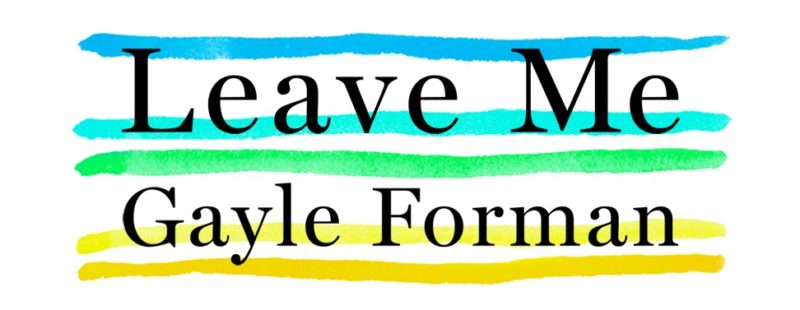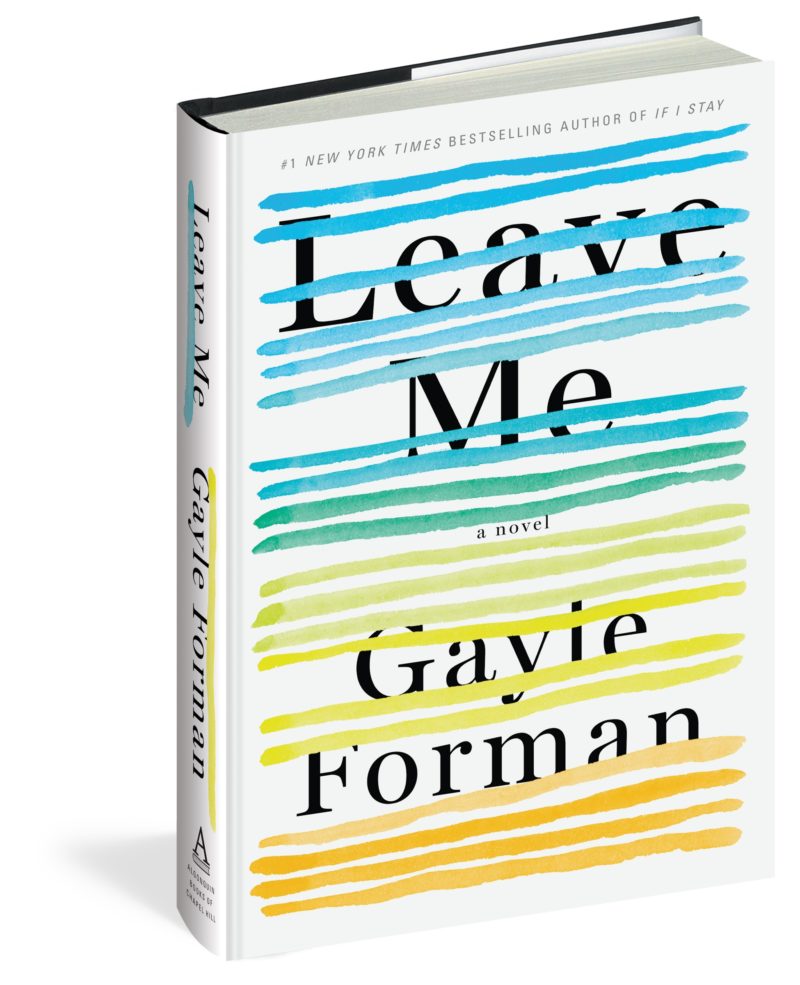Novels are like arguments. You think they’re about one thing—you’re certain they’re about one thing—but then time passes, perspective shifts, and you realize you’ve actually been writing (or fighting) about something else all along.
When I first conceived Leave Me, I thought this story about an overworked, underappreciated mother who has a heart attack and runs away from home was a cri de coeur about the inequity faced by working mothers. Because even in times of extreme crises, when women need to look after themselves—to be selfish—we’re often not allowed to, by our families, and by ourselves.
The inspiration was political, and personal. In the weeks prior, I’d been having intermittent chest pains and was convinced it was my heart. (This was not completely bonkers: My thin, fit, nonsmoking mother had her first quadruple bypass surgery at 48.)
As I contemplated open-heart surgery, I started to get scared. And then, angry. If I had this massive operation, who would take care of my two young daughters while I convalesced?
Who would take care of me?
My husband was a present, loving father, good about pitching in with cooking, tidying and the occasional grocery run. But he worked full-time in a job-job (unlike me, who worked “part-time” as a writer at home) and while he was excellent at bedtime stories and dance parties, he didn’t keep the mental inventory that I did: doctors’ appointments, parent-teacher conferences, homework, tax payments, location of snowsuits, level of coffee supply.
As a result, he wasn’t the one the kids came to when they barfed, when they wanted a snack, when they were bored or sad or scared. That fell to me. Which was why the most worrisome thing about my chest pains wasn’t the prospect of death, but the prospect of recovery. I remembered how three years before, after I’d undergone outpatient sinus surgery, I’d been exhausted by the recuperation because there had been so little reprieve from the daily grind of motherhood.
And that was sinus surgery, with one child. The specter of a heart attack and two children to look after amped up my anxiety and anger exponentially.
I started writing the book that would become Leave Me as catharsis, rant, revenge fantasy. I imagined an overworked mother who had a heart attack and subsequent bypass surgery and was still on deck for keeping her family afloat. Oh, the righteous indignation of it all. I imagined her running from home. Oh, the grim satisfaction!
But then it turned out my heart was fine, and the urgency fueling the story cooled. I put the book away, figuring it a therapeutic exercise that had served its purpose.
But four years and two novels later, the story began knocking on the door of my consciousness again. I’m still not sure why. Maybe after a decade of writing about young adults, I was ready to turn to people my own age. Maybe because issues of gender equality and default parents had finally become central to a broader national conversation.
This time, when I sat down to write, I had company. A new character, Maribeth Klein, was by my side. She felt less like an avatar of the Overworked Mother than a woman I knew deeply, intimately, the kind of droll, levelheaded woman who’s so busy that even when she suspects she might be having a heart attack, she carries on with her day because she has a to-do list to get through, dammit!
I still assumed I was writing the story I’d begun years before. The plot remained the same, but as I got deeper into the story, as I grew to understand Maribeth’s complex relationships with her husband, her best friend, her mother, and her children, I realized that these characters had pulled a bait and switch on me.
Yes, Maribeth and Jason have huge issues about parental divisions of labor, as do most parents I know. Maribeth believes this is what fuels their fight and her flight.
It is. And it isn’t. Because underneath that universal fight lurked a different fight, one specific to Maribeth and Jason, one too tender to touch, one that proved to be, excuse the pun, the heart of the story.
If I understood this about Maribeth, it was because in the years when the novel was marinating in a drawer (and in my head) I’d come to see that my husband’s and my prosaic you-do-I-do-you-don’t best hits arguments seemed to wax and wane, less dependent upon the workload than on the emotional load.
Half the time when we’re fighting about laundry, we aren’t really fighting about laundry at all. Laundry is just the Trojan Horse, hiding all the messy stuff inside. When we take the time to excavate that messy stuff, it not only clears the air, it alters the other fight, too, and allows us to approach the difficult task of family job-sharing and parenting with less resentment and more pragmatism. That, in turn, allows me to take care of myself without feeling (quite so) guilty about it.
Maribeth and Jason were also having two fights. This doesn’t mean that their laundry fight is not absolutely galling and important. Jason is a decent man, but he is so accustomed to Maribeth taking care of everyone that when she needs taking care of, he can’t handle it. Which is maddening. But Maribeth is also so accustomed to taking care of everyone that when she needs taking care of, she can’t handle it. Which is terrifying.
And so Maribeth flees her family. But not for the reasons she believes, or for the reasons I believed when I first started the book. What began as a cathartic revenge fantasy evolved into an examination of what happens when one woman knocks open her own Trojan Horse, takes a hard look at the mess inside, and discovers what she’s really angry about, what she’s really running from. Once she does, her shocking choice to run away, to take care of herself—to be selfish—no longer feels quite so shocking or so selfish. It feels like something that Maribeth is entitled to. Like something we are all, at times, entitled to.
Leave Me by Gayle Forman is available now wherever books are sold. Visit leavemebook.com for excerpts, essays, and more.

To celebrate the publication of Gayle Forman’s Leave Me, we’re offering a signed copy to one lucky winner! Enter below for a chance to win.






No Comments